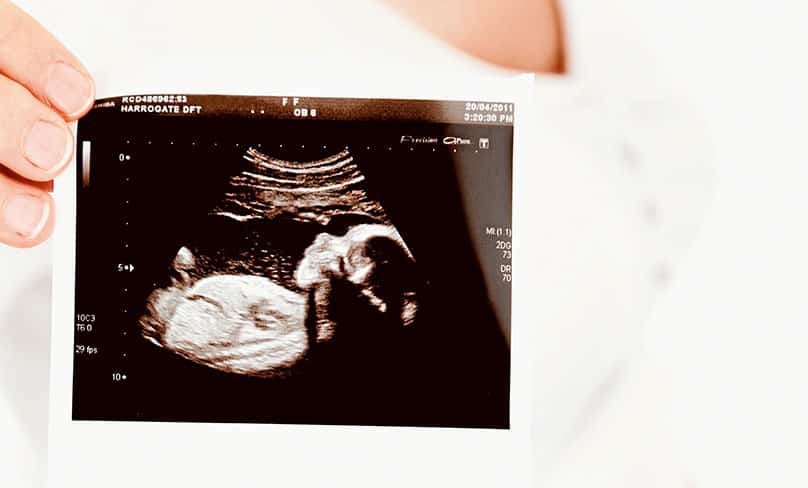
It is possible that later this week, another attempt will be made to pass the Crimes Amendment (Zoe’s Law) Bill 2017 in the NSW parliament. For those unfamiliar with it, Zoe’s Law, if passed, would see it become a crime to cause harm to or the Baby destruction of a child in utero. An offender would be punished with up to 10 years in gaol.
The background to Zoe’s Law began in 2001, when Byron, a seven-month old unborn child was stillborn after his mother, Renee Shields, was injured in an intentional road-rage incident.
At the time, there was no law under which the driver could be punished for Byron’s death, so the NSW Attorney-General commissioned a report to examine issues around when an unborn child dies following criminal actions perpetrated against the mother.
The report concluded that a new crime of “killing of an unborn child” should be introduced, to punish someone who kills an unborn child otherwise capable of being born alive. Instead of doing this, the then- NSW Labor government amended the Crimes Act to say that, even if a woman does not suffer any other harm, the destruction of a foetus (other than in the course of a medical procedure) is grievous bodily harm against her.
The aim of this was to criminalise the intentional, reckless or negligent killing of an unborn child while protecting abortion. It was an improvement, but still did not recognise the harm done to the unborn child as separate to what was done against the mother.
The debate arose again in 2009 when Zoe, the unborn daughter of Brodie Donegan and Nick Ball, was killed when Brodie was hit by a drug-affected driver, and again in 2013, when Mia, the unborn daughter of Jacqueline Sparks and Chi Nguyen was killed by a driver affected by ice (crystal methamphetamine).
Most recently, the 28 September death of Katherine Hoang and her unborn twins in a car accident reignited the debate.
Each time it has come up, pro-abortion activists have fiercely opposed Zoe’s Law because it would recognise an unborn child as a person for the purposes of criminal law.
Activists would prefer unborn children killed even in the tragic circumstances described above to be ignored by the law than to risk any intrusion on the widespread, unrestricted availability of abortion currently “enjoyed” in NSW.
It’s the subject of another column, but it is really disturbing that so many “women’s rights” groups are so opposed to this law.
What makes the debate different this time is that there is another debate occurring as well; this time within the pro-life community itself.
As currently drafted, Zoe’s Law places no gestational limit on when a child is recognised by the law. Because of this, there is little chance it will be passed in its current form, so there are attempts to gain support from “pro-choice” politicians by saying it only applies if the unborn child is more than 24 weeks’ gestation.
Including a time limit is causing debate – and real angst – for those who want to protect unborn life from conception, and also who want to advocate for what is best for affected mothers. On the one hand, even a law that includes a time limit would nonetheless be an improvement on the laws we currently have, because at least it would be a recognition in law that an unborn child is a separate person to the mother, and this would be a significant development.
It would also recognise that the pain experienced by a baby’s death is different to the pain caused by the other injuries a mother might endure as a result of a car crash or violent attack. It is a loss felt long after the physical wounds have healed.
Zoe’s Law would validate the grief experienced because of this loss.
Additionally, it could provide a deterrent to domestic violence, because pregnancy increases the risk of domestic violence for women. The Australian Bureau of Statistics tells us that almost 15 per cent of pregnant women experience violence from a current or ex-partner, and so any law that might prevent that is absolutely welcome.
But there is also a major risk in supporting a law with a gestational limit.
Given that the proposed penalties under Zoe’s Law are the same, or at times even less, than those applicable under current law that treats the unborn child’s death as grievous bodily harm to the mother, the introduction of Zoe’s Law would provide no practical difference in terms of punishment. Instead the change would be symbolic.
But a symbolic change that sets an arbitrary line between unborn life that falls under Zoe’s Law and unborn life which does not implies – at least (if not outright concedes) – that there is a value differential in unborn children based on gestational age.
This is particularly risky given the recent announcement by Opposition Leader Luke Foley that a future Labor government would move to decriminalise abortion, because any “agreed” line drawn on unborn life will no doubt be picked up by abortion activists in the coming months.
Given this risk and the current state of affairs, my view is that the pro-life movement is better served by our existing imperfect law that doesn’t mandate an age when assigning personhood.
